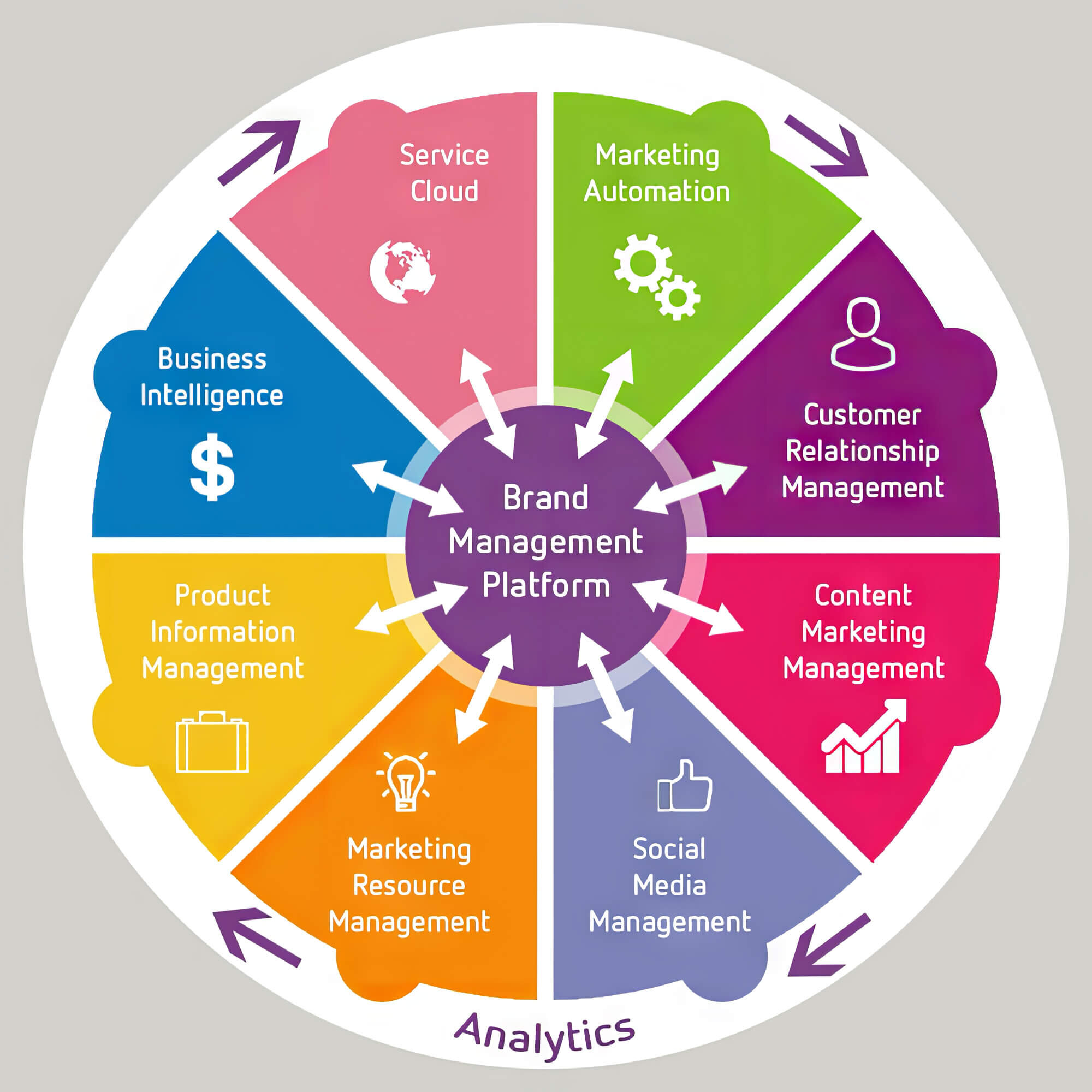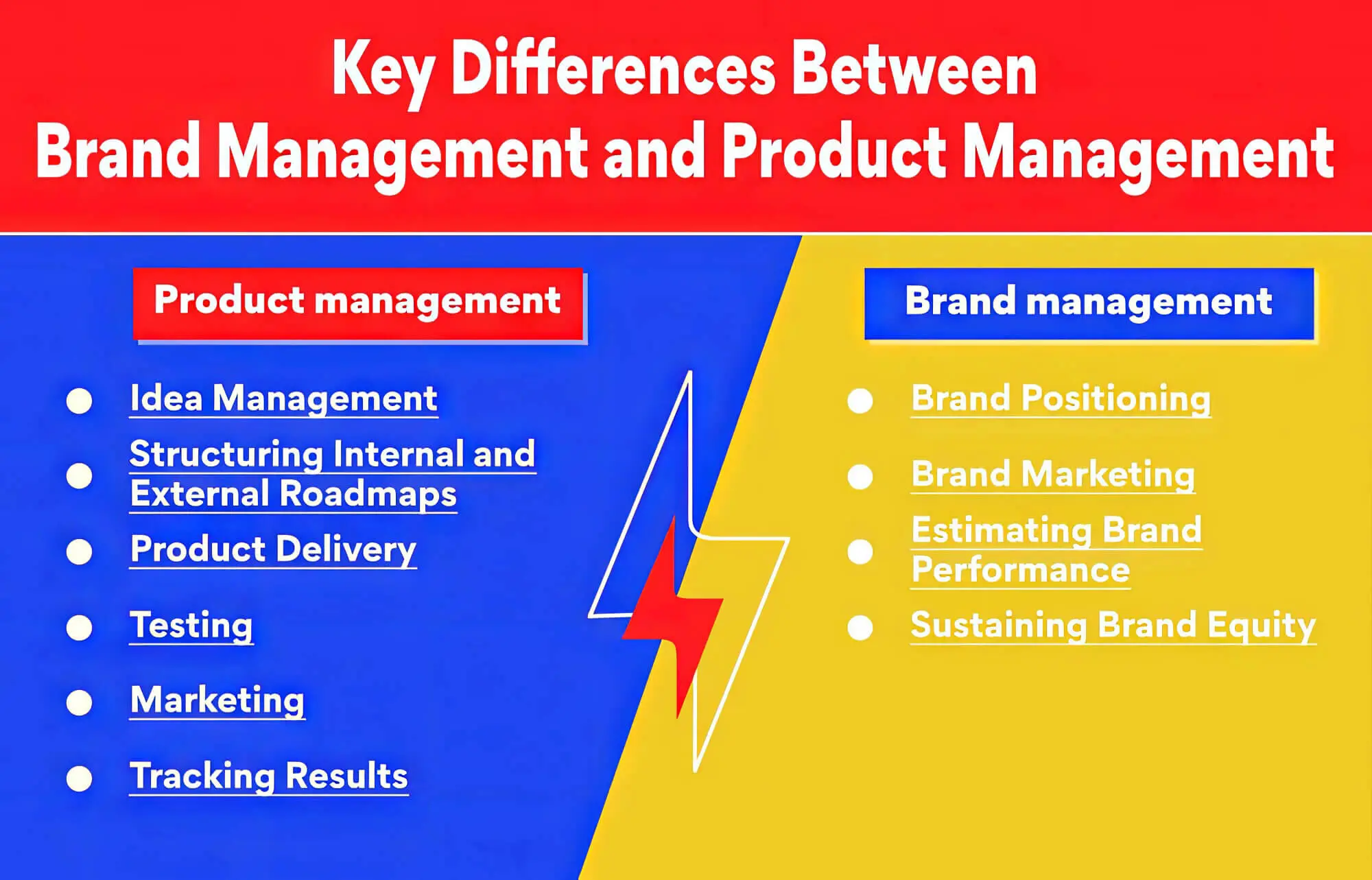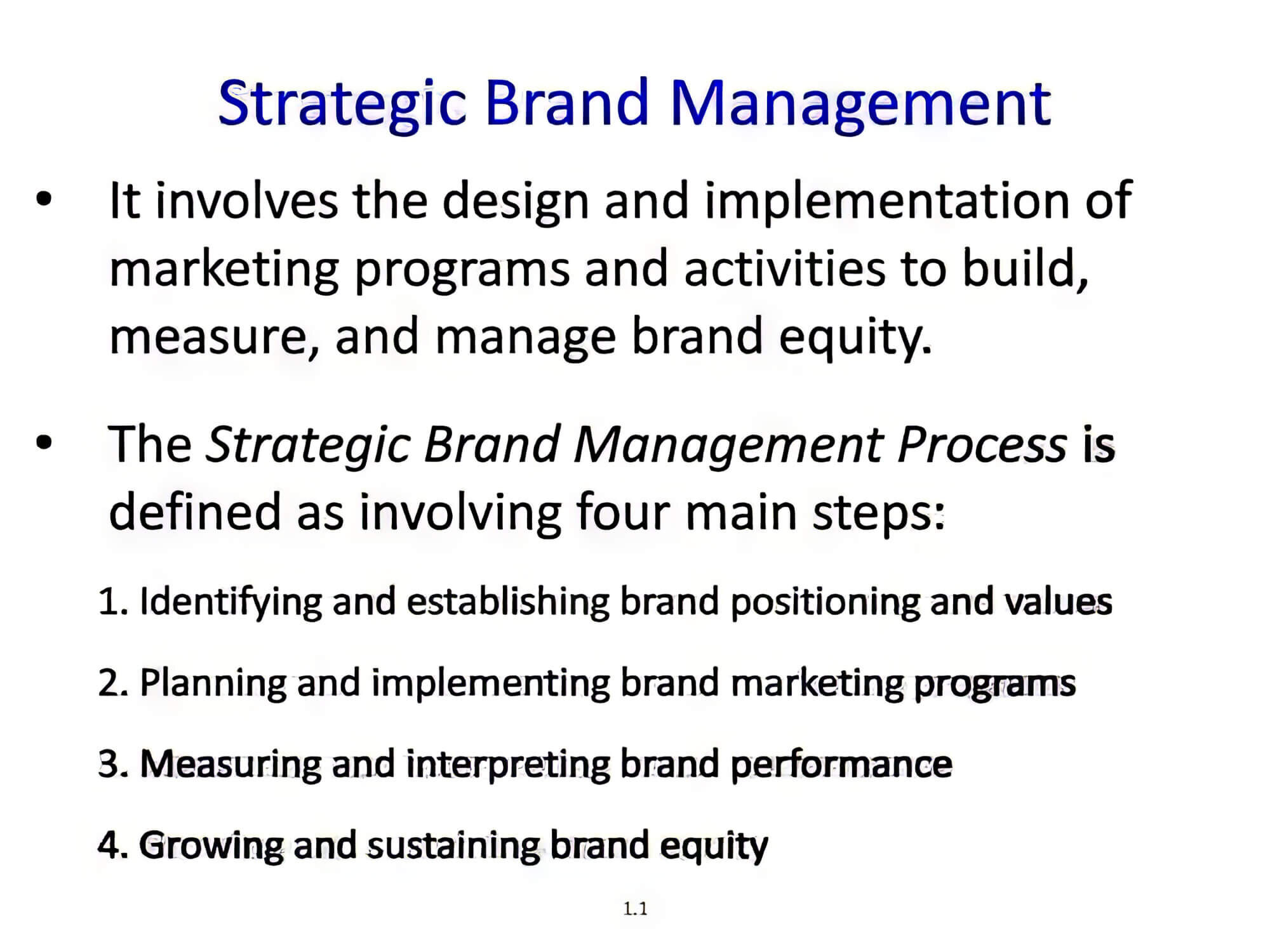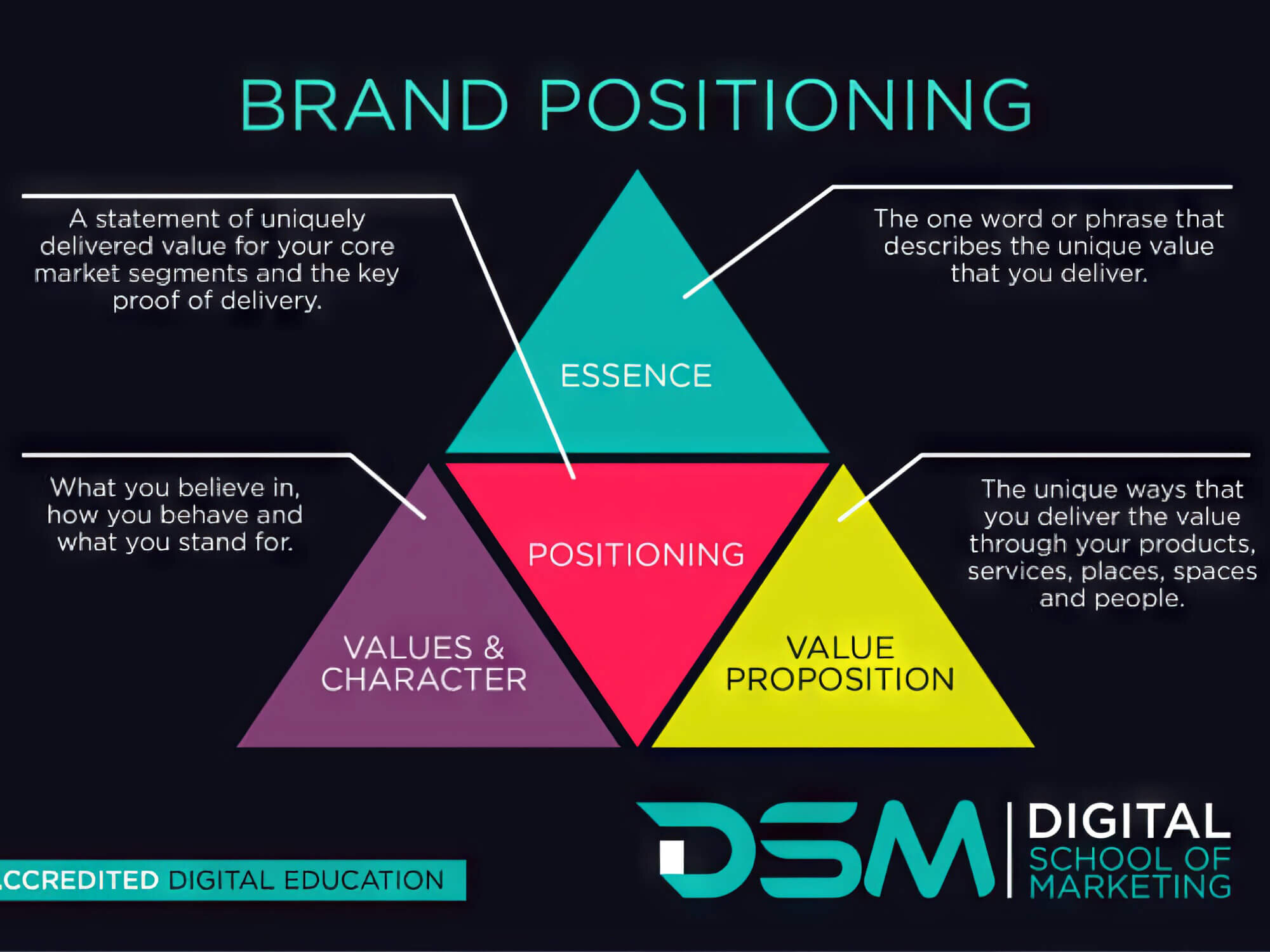In recent years, we’ve seen a technological revolution, with artificial intelligence (AI) leading the charge. With AI growing rapidly, businesses—big and small—are jumping on board to streamline operations and boost customer experiences.
One area where AI has shown tremendous potential is brand management, which has become increasingly important in the digital age.

Brand management is the process of maintaining and enhancing a brand’s image, reputation, and value.
It involves developing a brand strategy, creating a brand identity, and building brand awareness through marketing and advertising efforts. However, the rise of AI has revolutionised this process, making it imperative for businesses to adapt to this change.
AI is now being used to collect and analyse data, predict consumer behaviour, and automate marketing efforts, among other things.
The use of AI in brand management is not limited to just big businesses. Small and medium-sized enterprises (SMEs) can also benefit from AI technology, as it can help them level the playing field and compete with larger companies.
SMEs can tap into AI tools to craft targeted marketing campaigns, dive into consumer behaviour analysis, and fine-tune their online presence, casting a wider net to reach more people.
However, while AI presents numerous opportunities, it also poses challenges. One of the major challenges of AI in brand management is data privacy and security.
Businesses must comply with data protection regulations to protect their customers’ personal information when collecting and analysing large amounts of data. Additionally, AI algorithms could make biased decisions, which could negatively affect a brand’s reputation.
AI Is Changing Your Brand. Is Your Brand Changing With It?
Artificial intelligence (AI) is transforming our world, and how businesses operate is no exception. In recent years, AI has become a buzzword in marketing and advertising, and for a good reason.
It can change how we approach branding and marketing, and businesses need to keep up with the changes to stay competitive.
Customer Experience
AI is significantly altering branding by letting businesses personalise the customer experience.
With AI-powered tools like chatbots and virtual assistants, businesses can interact with customers in real time, answering questions and providing personalised recommendations based on a customer’s preferences and purchase history.
This level of personalisation improves the customer experience and helps businesses build stronger relationships with their customers.
Predictive Analytics
Businesses can analyse data from customer interactions to predict future behaviour and tailor their marketing efforts. For example, suppose a customer frequently purchases a certain type of product. In that case, AI can predict that they will likely use that same product again and recommend similar items to them.
This level of personalisation improves the customer experience and helps businesses increase sales and revenue.
Content Creation
AI is also changing the way businesses approach content creation. With AI-powered tools like natural language generation, businesses can quickly create personalised content for their target audience.
This saves time and resources and ensures that the content is extremely important for the needs and interests of the target audience. AI can also help businesses analyse and optimise their content by identifying which pieces resonate with their audience and which do not.

Disadvantages of AI in Brand Management
Artificial Intelligence (AI) has revolutionised numerous industries, including marketing and brand management.
AI-powered tools and solutions have made it easier for businesses to analyse customer behaviour, develop targeted marketing campaigns, and automate various tasks. However, like any technology, AI has disadvantages, particularly brand management.
Lack of Human Touch
While AI can automate many tasks, such as data analysis and customer segmentation, it cannot replicate human empathy and creativity.
A brand is more than just a logo or a product; it is an emotional connection between the business and its customers. Creating this connection requires a human touch, which AI cannot provide.
Inability to Adapt to Unpredictable Situations
AI works best in predictable and structured environments. However, in the real world, brand management is often unpredictable and requires quick thinking and adaptation.
AI tools may be unable to handle unexpected situations, such as negative social media feedback or sudden changes in customer behaviour.
Brands need human expertise to manage such situations and make quick decisions based on real-time information.
Bias and Discrimination
AI is only as good as the data it’s trained on. If the data is biased or discriminatory, the AI algorithms will replicate that bias, leading to unfair treatment of certain groups of people.
This is particularly problematic in brand management, where brands need to appeal to a diverse audience.
AI algorithms can unintentionally exclude certain groups of people, negatively impacting the brand’s image and reputation.

Lack of Creativity
While AI can analyse data and provide insights, it cannot generate creative ideas. Brand management requires creativity and innovation to stay ahead of the competition and attract new customers. AI can assist in the creative process but cannot replace human creativity.
Rands that rely too heavily on AI tools may lose their unique voice and personality, making it harder to stand out in a crowded marketplace.
Security Risks
AI-powered tools often require access to sensitive data, such as customer information and business marketing strategies.
If the AI tools need to be appropriately secured, this can create security risks. Hackers can exploit vulnerabilities in AI algorithms to access sensitive information, damaging the brand’s reputation and financial losses.
Cost
Implementing AI-powered brand management solutions can be costly, particularly for small and medium-sized businesses. AI requires significant hardware, software, and talent investment to build and maintain the system.
This can be a significant barrier to entry for businesses that need more resources to invest in AI.
Emerging Principles For Brand Management In The Age Of AI
In the Artificial Intelligence (AI) age, brands face new challenges and opportunities. AI technologies transform how brands interact with consumers, gather insights, and make decisions. As such, brand management in the age of AI requires a new set of principles to guide best practices.
Embrace Data-Driven Decision Making
AI allows brands to collect and analyse vast amounts of data, giving them unparalleled insights into consumer behaviour and preferences.
Brand managers must embrace data-driven decision-making to take advantage of this opportunity. By using AI-powered analytics tools, they can identify trends, predict consumer behaviour, and optimise their marketing campaigns.
Personalise Experiences
AI allows brands to personalise experiences for individual customers, increasing engagement and loyalty. By leveraging data from past interactions and preferences, brands can create tailored experiences that resonate with consumers on a deeper level.
For example, AI-powered chatbots can provide personalised recommendations and support, while AI-powered content recommendations can deliver personalised content to each user.
Focus on Customer Trust and Transparency
As AI becomes more integrated into brand management, consumers become more aware of how their data is collected and used. As such, brands need to prioritise customer trust and transparency.
Brands should be transparent about their data collection and use practices and seek to build trust with customers by being honest and transparent about their intentions.

Create Value Beyond Products and Services
In the age of AI, brands need to create value beyond their core products and services. By leveraging AI technologies to offer additional value to customers, brands can increase loyalty and build stronger relationships.
For example, a fitness brand might use AI to provide personalised workout recommendations, or a fashion brand might offer customised styling tips.
Embrace Ethical AI Practices
As AI becomes more integrated into brand management, brands must prioritise ethical AI practices. This means ensuring that AI technologies are being used in fair, transparent, and accountable ways.
Brands should also be aware of the potential biases that AI can introduce and take steps to mitigate these biases.
Invest in AI Talent
To succeed in the age of AI, brands need to invest in AI talent. This means hiring data scientists, machine learning engineers, and other AI experts who can help brands leverage AI technologies to their full potential.
By investing in AI talent, brands can stay ahead of the competition and ensure they use the latest AI tools and techniques.
Continuously Learn and Adapt
Finally, brand management in the age of AI requires a willingness to learn and adapt continuously. As AI technologies evolve, brands must stay current on the latest developments and adjust their strategies accordingly.
This means experimenting with new AI tools and techniques, analysing the results, and refining their approach based on what they learn.
Can You Trust AI To Act On Behalf Of Your Brand?
AI is becoming more prevalent in marketing, and questions are being raised about its trustworthiness. Can you trust AI to act on behalf of your brand?
We will explore the factors contributing to AI’s trustworthiness in marketing and the risks and limitations associated with its use.
Factors That Contribute to The Trustworthiness of AI
Trustworthiness is defined as the degree to which AI can be relied upon to perform its intended functions accurately and effectively. Several factors contribute to the trustworthiness of AI in marketing, including:
Accuracy
The accuracy of AI algorithms is critical to their trustworthiness. When AI personalises customer interactions, it must accurately identify customer preferences and behaviours.
Similarly, when AI is used to predict consumer behaviour, it must generate accurate predictions based on reliable data.
Transparency
The transparency of AI algorithms is also essential for their trustworthiness. For users to trust AI, they must understand how it works and how it arrived at its conclusions.
This is particularly important in marketing, where AI’s decisions can significantly impact brand reputation.

Consistency
The consistency of AI algorithms is another critical factor in their trustworthiness. When AI is used to automate routine tasks, it must perform those tasks consistently and reliably.
Similarly, when AI is used to make decisions, it must do so consistently and in accordance with established criteria.
Ethical Considerations
Finally, the ethical considerations associated with AI use are essential for its trustworthiness. AI must be programmed with ethical guidelines that align with brand values and comply with regulatory requirements.
Will AI Diminish Perceived Brand Value?
Brand value refers to the perceived value of a brand by consumers. It is the sum of all the tangible and intangible elements that contribute to the perception of a brand.
Tangible elements can include product quality, pricing, and customer service, while intangible elements can include brand personality, reputation, and emotional connection.
Why is Brand Value Important?
Brand value is crucial because it directly impacts a company’s bottom line. A strong brand can increase customer loyalty, profit margins, and market share. Conversely, a weak brand can lead to lower sales, lower profit margins, and reduced market share.
How Can AI Impact Brand Value?
There are several ways in which AI can impact brand value, both positively and negatively. Let’s explore some of these potential impacts in more detail:
Personalisation
AI algorithms sift through tons of consumer data, helping businesses deliver spot-on, personalised marketing messages. This precision can boost customer loyalty and elevate brand engagement.
On the other hand, if AI-powered personalisation is not executed correctly, it can have the opposite effect.
Consumers may feel that their privacy is being invaded or that the brand is manipulating them. This can decrease brand value and consumer trust.
Product Development
AI can also improve your brand authority through product development. Using AI algorithms to analyse consumer data, businesses can identify emerging trends and preferences and develop products that meet their customers’ needs better. This can lead to increased customer satisfaction and loyalty.
However, if AI is solely relied upon to make product development decisions, businesses run the risk of losing touch with their customer’s needs and preferences.
This can lead to a decline in brand value as customers turn to competitors who better understand their needs.
Brand Messaging
Finally, AI can impact brand value through brand messaging. By analysing consumer data, businesses can create highly targeted and effective marketing messages that resonate with their target audience.
However, if these messages are not authentic or do not align with the brand’s values and mission, they can lead to a decline in brand value as consumers lose trust in the brand.
AI for Brand Management
The rise of AI technology is transforming the way brands approach brand management. It is clear that AI is becoming an indispensable tool for brands looking to gain a competitive edge in an increasingly crowded market.
By leveraging the power of machine learning and data analytics, brands can gain deeper insights into consumer behaviour, preferences, and trends, enabling them to make more informed decisions about how to position themselves in the market.
However, it is important to recognise that AI is not a silver bullet for brand management. While it can provide valuable insights and streamline specific processes, it must maintain human intuition and creativity.
Brands must still rely on human expertise to make strategic decisions and build strong customer relationships.
As AI becomes more sophisticated, it raises important ethical and regulatory concerns. When using AI tools to manage their brands, brands must be mindful of issues related to privacy, transparency, and bias. They must also be prepared to adapt their strategies as technology evolves and new challenges emerge.
One key takeaway from the growing role of AI in brand management is the need for brands to prioritise data literacy and digital skills among their employees.
As AI becomes more integrated into business processes, employees must understand how to use and interpret data effectively and collaborate with AI systems to maximise their benefits.
Ultimately, the future of brand management will depend on how well brands can balance AI’s potential with human creativity and intuition’s unique strengths.
As AI continues to evolve and integrate into our daily lives, brands that can strike this balance effectively will be best positioned to thrive in an increasingly competitive and dynamic market.




